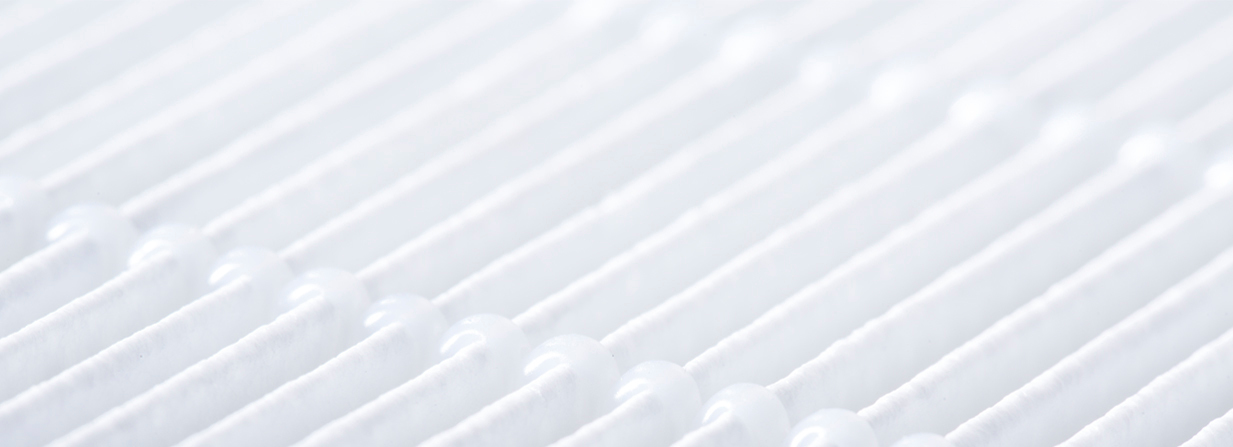Infection prevention through filtration
Ambient air contains all sorts of invisible aerosols, unpleasant suspended materials, pathogens, dust and pollen. The Kärcher HEPA filters, which are built into our Kärcher vacuum cleaners, clean the air effectively by removing these undesirable particles. Separated particles are trapped in the filter, where they deteriorate after a while – even when the air is more humid. This reliably minimises the concentration of pathogens in indoor areas and the accompanying risk of infection.
Preventing infection using vacuum cleaners with HEPA-14 filters
Kärcher dry vacuum cleaners such as the T 11/1 Classic HEPA are fitted with a high-performance HEPA-14 filter, which reliably filters out 99.995% of particle-bound viruses (certified to EN 1822/2019 and DIN EN 60335-2-69 standards), trapping pathogens from the extracted air. They are also very quiet, making them suitable for places where noise needs to be kept to a minimum, such as hospitals, public facilities or hotels.




How does air purification with vacuum cleaners work?
The functional principle of a HEPA dry vacuum cleaner from Kärcher is based on two primary factors: firstly, the unbeatable suction power and secondly, the extremely effective HEPA-14 filter that is built in to the vacuum cleaner. Its close-meshed net of fibres traps even the smallest particles, such as the SARS-CoV-2 virus particulate.
If a virus is emitted by a cough, for instance, it moves around the air in the room in the form of large droplets (aerosols comprise 50,000–500,000 individual droplets), then sticks to dust particles in the air and falls to the floor. When vacuuming with a vacuum cleaner that is fitted with a high-performance HEPA-14 filter, such as the T 11/1 Classic HEPA from Kärcher, the majority of these particles that are contaminated with micro-organisms (e.g. viruses) can be picked up and reliably trapped. In this way, Kärcher vacuum cleaners with built-in HEPA-14 filters are a very helpful tool in preventing infection.
Changing the HEPA-14 filter couldn't be simpler, with no need for tools. To benefit from the full efficiency of the filter, however, the filter bag must also be regularly replaced – with heavy use, it is recommended the filter bag is replaced every two weeks, and the HEPA-14 filter every four weeks. When replacing filter bags or HEPA-14 filters that may be contaminated with pathogens such as viruses, bacteria, yeasts or spores, it is essential that adequate personal protective equipment is worn and the relevant hygiene and/or disinfection guidelines are followed.
Benefits of vacuum cleaners with HEPA-14 filter
- Filters 99.995% of particle-bound viruses, bacteria, mould spores, respirable particles and dust (verified to EN 1822/2019 and DIN EN 60335-2-69 standards)
- Reduces the risk of infection from circulating germs


Areas of application for vacuum cleaners with HEPA-14 filters
Ideal for areas where hygiene is paramount, such as hospitals, retirement homes or care homes, and nurseries, and a worthwhile addition to conventional hygiene measures in offices, canteens or shops.
Kärcher professional vacuum cleaners with HEPA-14 filter
The following professional vacuum cleaners from Kärcher either have a built-in HEPA-14 filter or can be fitted with one:
- T11/1 Classic HEPA dry vacuum cleaner
HEPA-14 filter: the hygiene solution for clean indoor air
HEPA-14 filter: the hygiene solution for clean indoor air
We come into contact with viruses, bacteria, fine dust and allergens every day, which circulate in indoor air in offices, hotels, hospitals, doctor's surgeries, schools, as well as in our houses and apartments, of course. Respiratory ailments are often the long-term consequence.
The Kärcher HEPA-14 filter provides lasting assistance to filter aerosols from the air in enclosed spaces and to remove harmful particles. Built into Kärcher air filtration devices and dry vacuum cleaners, they clean indoor air efficiently and reliably.


